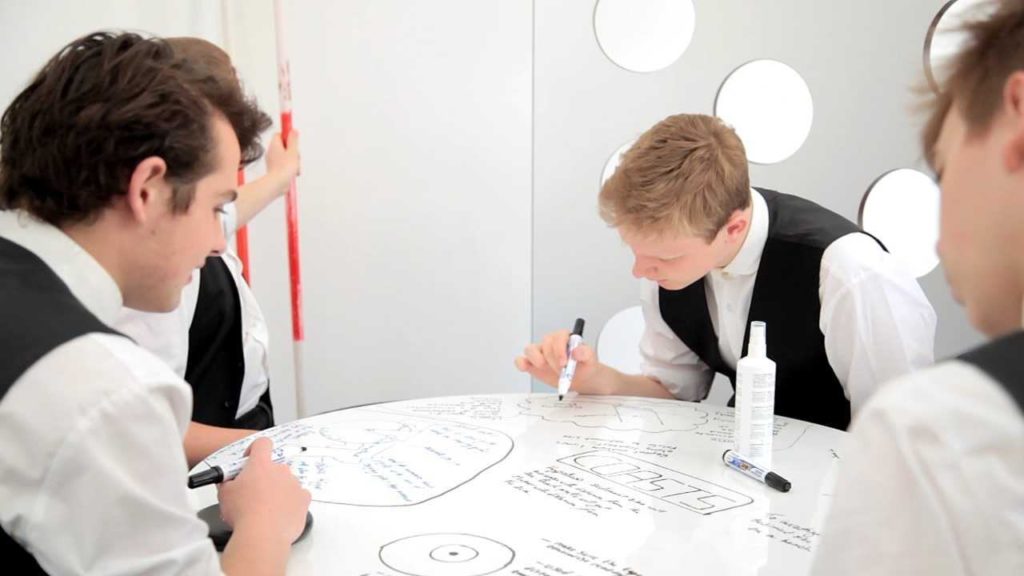Future skills, also known as soft skills, real-world skills or 21st-century skills, are essential to success in life. Skills such as communication, critical thinking, collaboration, problem-solving and decision-making are frequently cited by employers as having at least as much value as academic attainment.
Despite the growing value placed on these skills, academic success is still often the main focus of education systems, parents and teenagers around the world.
Fewer than three in ten employers think that recent college graduates are well prepared [for the workplace].Falling Short? College Learning and Career Success, Hart Research Associates, 2015
The changing workplace
Thanks to globalisation and technological innovation, the modern workplace is changing at an ever-increasing pace. Machines have been replacing humans in manual and repetitive tasks for decades, but changes are now coming to the professions, too. In the past, being a subject expert with knowledge gained at university was the key to a successful career.
Today, knowledge and competencies do not stay relevant for long. Which of today’s big-data analysts, social media managers, cloud-computing specialists or driverless-car engineers would have been able to imagine their current jobs as they started high school?

For more traditional careers such as law and medicine, disruption is coming from ‘Expert Systems’ which will augment and eventually replace the specialist knowledge that students learnt in college.
Therefore, employers are looking for candidates with a broad skill set, who can adapt to change, solve new problems and display flexibility to find new ways of using existing knowledge.
For now, at least, there are skills that humans beat computers in such as creativity, communication and the ability to work in a team. The most sought-after candidates will be able to provide evidence of these skills to prospective employers.
Our emotionality and social IQ developed over millennia of living in groups will continue be one of the vital assets that give human workers a comparative advantage over machines.Institute for the Future for the Phoenix Research Institute, Future Work Skills 2020
Globalisation means that at university and in the workplace young people will encounter fellow students and colleagues from many different cultural backgrounds.
This requires social and emotional intelligence so that young people can build relationships and work in teams across cultures. Team work and communication takes place not just face to face, but across continents. Students, therefore, need to develop the ability to communicate effectively using the latest technology.
Interviewing for a job, influencing and motivating others, negotiating deals and working on projects might happen on screen not face to face. Online courses that include online interaction between students from different cultures are a useful start to developing both the inter-cultural and communication skills students will need for life.
Numerous innovations in the education technology space are beginning to show potential in improving education and helping address skills gaps.World Economic Forum, New Vision for Education: Unlocking the Potential of Technology, 2016
Our Future Skills courses are designed to help teenagers succeed in their future.
Learning future skills
It is often assumed that social and emotional skills are character attributes that come naturally to some and not others. While it is true that individuals have differing levels of assertiveness and resilience, research shows that these skills can be developed.

Even more encouragingly, social and emotional skills also greatly influence cognitive performance in skills such as reading and writing.
For example, children who are able to show determination will increase their maths skills more than others who start with the same level of maths skills but give up more easily when they face difficulty.
If soft skills are important and employers are demanding them, why are traditional education systems still focused on rote learning and specific subject knowledge? The reasons are complex.
Soft skills are thought of as hard to measure, so they tend to be overlooked in a school system that relies on quantifiable results. Schools and governments are held accountable for academic results, so educators find it hard to justify allocating time and resources to programmes that are not academically-focused, even if they see the value of them.
Some forward-thinking schools, like Eton College, emphasise a curriculum in which academic skills are complemented by a range of co-curricular activities.

This creates environments, projects and programmes where students can develop soft skills. In Eton’s case, academic excellence goes hand in hand with opportunities for personal development and the acquisition of soft skills.
The societies that boys set up and run themselves (over 100 in total) and the house system, which promotes a sense of community and gives leadership opportunities to senior boys, are examples of this ethos.
Eton’s experience in this area of education has developed over many centuries, but it is increasingly aware of just how important promoting and developing these skills are as the College prepares its students for the changing world.
Eton’s investment in EtonX’s Future Skills Programme is testament to its belief in the importance of soft skills development.
